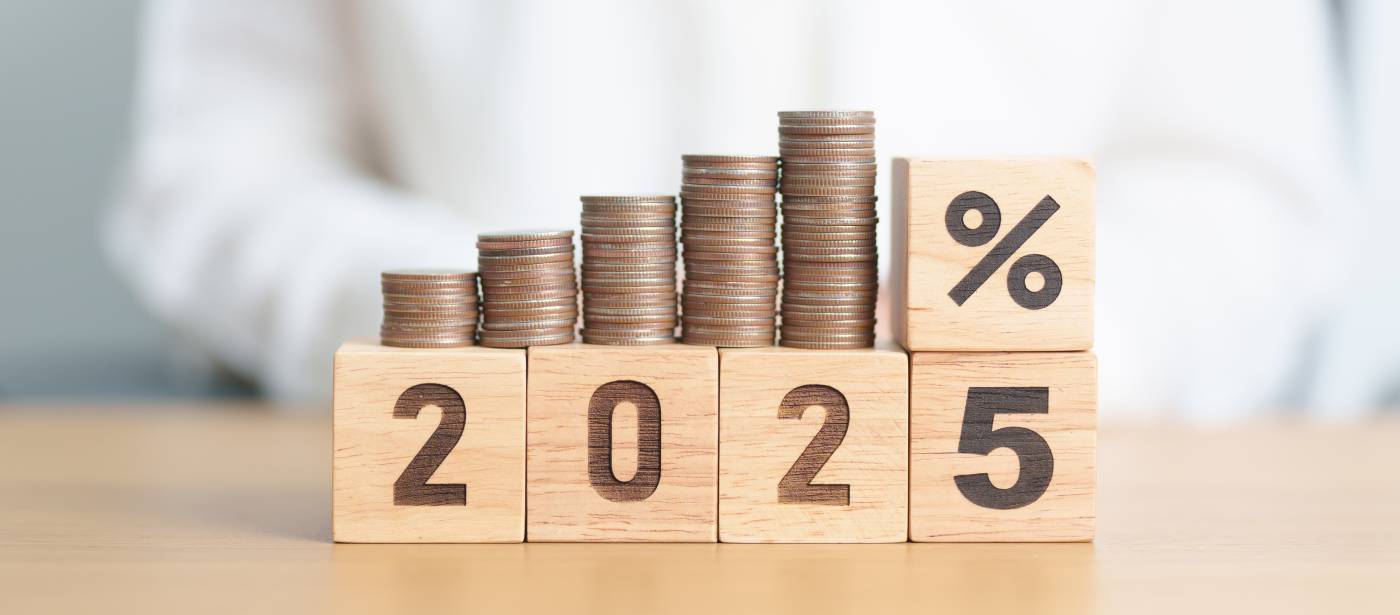
More than 24 million people hold Premium Bonds in the UK, with over £127 billion invested. But a large proportion of holders have never won a prize – and now the prize rate is going down again.
Whether you’ve already got a holding or are considering buying some, we’ll take an in-depth look at whether Premium Bonds are still worth it, and who they might be best suited for.
What’s on this page?
The premium bond prize rate is being cut to 3.6% in August – the second reduction this year. This follows a cut from 4% to 3.8% in April. The odds of a win will remain at 22,000 to 1. That’s because there are expected to be more £25 prizes (the smallest prize).
The number of million-pound prizes is also expected to stay the same, at two per month. But all the prizes in between (from £50 up to £10,000) will be given out less often. So overall the odds of a big win are even longer.
Sarah Coles, head of personal finance at wealth firm Hargreaves Lansdown, explains: “The writing has been on the wall for Premium Bond prizes ever since the Bank of England cut interest rates in May. The most competitive easy access savings rates have held up impressively, but the market has been inching gradually south.
“NS&I pledges to be ‘middle of the road,’ and as the road has moved into less rewarding territory, it was bound to make this cut.”
The prize rate is effectively the number of bonds divided by the number of prizes. The idea is it tells you how much will be paid out in prizes. However, it’s important to understand that it does not provide an indication of your likely return.
The nature of Premium Bond prizes is that they are ‘lumpy’. There’s no such thing as an ‘average return’ and while a lucky few will win big, in the typical month, the average bondholder will win nothing.
Laura Suter, director of personal finance at wealth platform AJ Bell, says: “The Premium Bond ‘prize fund rate’ is intended to give savers some comparison with how the account compares to normal savings accounts. But it could be misleading for many savers, as the ‘effective rate’ is the average return you would get based on having average luck in the prize draw.
“Clearly not everyone has ‘average’ luck, otherwise the prizes would be handed out equally to every saver. The fact that there are some very large prizes also skews the figures – as it means that for every person who wins £1 million or £100,000 there will be hundreds who win nothing,” she adds.
The good news is that the odds of winning remain the same: for every £1 you hold, you have a 1 in 22,000 chance each month of winning a prize. The smallest prizes of £25 were already the most likely to be won.
And the odds have shifted even more towards winning £25, if you win anything at all. Consultancy firm Broadstone has calculated over 80% of the 6 million prizes expected in August will be for £25, £50 or £100.
Greig Bingham, head of financial modelling at Broadstone, says: “This will be disappointing for savers and another reminder that, as interest rates fall, people will need to work harder to put their cash to work and earn attractive returns.”
The chances of a win rise as the number of bonds you hold rises – because each bond is a single entry into the draw. But even with £50,000 of bonds (the maximum you’re allowed) a person with average luck will get a return of less than 3.3%. Someone with a smaller holding, with average luck, will get a lower return still.
This is because the official prize rate is based on the ‘mean’ or average rate, which is skewed by the tiny number of people who win £1m. When you look at the more helpful ‘median’ – which is more like the amount that an average person wins, the rate is lower.
.jpg?sc=max&mw=800&h=450&la=en&h=731&w=1300&hash=D71342857F0F15768E67EEDEAECB61C8)
| Value of prize | Number of prizes, June 2025 | Number of prizes, August 2025 (estimate) |
|---|---|---|
|
£1,000,000 |
2 |
2 |
|
£100,000 |
79 |
75 |
|
£50,000 |
159 |
151 |
|
£25,000 |
317 |
302 |
|
£10,000 |
792 |
754 |
|
£5,000 |
1,585 |
1,507 |
|
£1,000 |
16,649 |
15,869 |
|
£500 |
49,947 |
47,607 |
|
£100 |
1,853,552 |
1,687,680 |
|
£50 |
1,853,552 |
1,687,680 |
|
£25 |
2,197,831 |
2,569,568 |
|
Total number: |
5,974,465 |
6,011,195 |
|
Total prize value: |
£416,221,075 |
£396,738,700 |
The question for many savers is whether this will be the last time the rate falls. On the one hand, NS&I’s fundraising target has risen slightly to £12 billion. This means it has to offer an attractive deal to savers and investors to get them to put their money with NS&I.
On the other, at a time when the Bank of England is expected to make two more rate cuts before the end of the year, savings rates will almost certainly continue to edge lower. The prize rate is likely to fall in step with it.
Suter says: “The Premium Bond prize rate is now significantly below the top rates in the market, meaning savers are paying a hefty premium for the safety and brand name of NS&I.
“The top easy-access account on the market pays 5% interest, meaning that someone with £20,000 of savings will be sacrificing £280 of interest a year by opting for Premium Bonds. But that also assumes they get the average return on the account – when many get less.”
Figures revealed by a Freedom of Information (FOI) request made by AJ Bell recently revealed that nearly two-thirds of Premium Bond holders – equivalent to just under 14.4 million people – have never won a prize.
There is a whopping £127.7 billion sitting in Premium Bonds, with the average overall holding coming in at £5,406. Only a minority of holders (5.1 million) have won in the last 12 months. Looking at these winners, their average holding is much higher than the average, at £23,397. And 80% of these winners won more than once during that period.
When you factor in that some people will have been holding Premium Bonds for decades, perhaps receiving them as gifts when they were young, that means they may have missed out on significant returns in a higher-paying cash account or by investing in the stock market.
Over time, inflation will eat into the value of your savings, and if you hold Premium Bonds for a considerable period, you could be shocked at the damage it can do to your spending power.
Coles says: “Some people are happy with this trade-off in return for the vanishingly small chance of a big win, but others prefer the certainty of a strong rate in the wider savings market.”
There are some people Premium Bonds might be right for:
Premium bond prizes are tax-free. But the personal savings allowance means basic-rate taxpayers can already earn £1,000 interest on their savings before they pay tax, while higher-rate taxpayers can earn £500.
With higher interest rates in recent years, more people have been hitting this allowance. Assuming their cash was in the current top-paying easy access savings account earning 5%, a basic-rate taxpayer would need to have £20,000 in savings to breach their tax-free allowance, while a higher-rate taxpayer would only need to have £10,000.
Those in the highest rate tax bracket (additional-rate taxpayers) get no savings allowance, and so will pay 45% tax on any of their savings income.
“For these highest earners, or those who have already breached their allowance, the tax-free nature of Premium Bonds becomes far more attractive,” adds Suter.
If the savings rates on standard accounts don’t excite you then you can gamble on winning one of the top Premium Bond prizes – after all, someone has to win it.
Suter says: “However, anyone in this camp needs to be aware that they could win nothing, and so get no return on their money. Equally, your chances of winning depend on how much you hold in Premium Bonds. So, someone with £100 saved is much less likely to win than someone who has £20,000.”
Premium Bonds are run by the government, so they are seen as the safest-of-safe places to keep your money. However, anyone with money in a UK-registered bank or building society is anyway protected by the Financial Services Compensation Scheme (FSCS), which covers up to £85,000 of money per person, per financial institution.
This means your money is as safe in any bank with FSCS protection as it is with Premium Bonds.
There is one tiny difference. “Because NS&I is government-run it can’t go bust, whereas a bank could go bust and then you’d have to reclaim your money through the compensation scheme. It’s a marginal difference, but some people will feel much safer with their savings being with the government,” Suter says.


Enjoy the freedom to withdraw your savings at any time.



Find out how interest rates will affect your finances, from mortgages and borrowing to saving.

Find out what happens next & what to do if you’re worried about your ISAs.